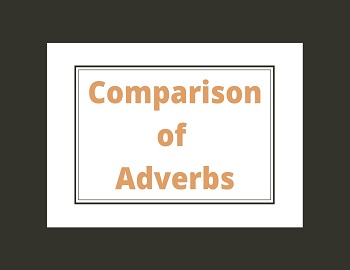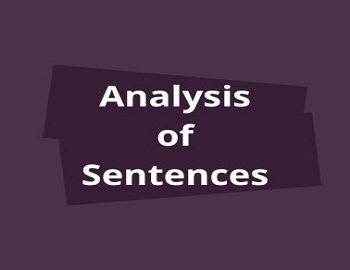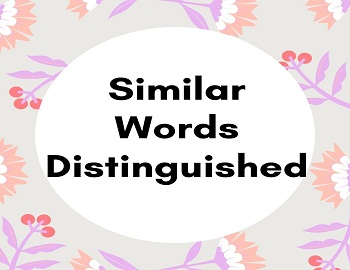Comparison of Adverbs:
Some Adverbs like Adjectives also have three Degrees of Comparison.
(1) Adverbs of one syllable form their Comparative by adding ‘er‘ and Superlative by adding ‘est‘ to the Positive; as,
| Positive | Comparative | Superlative |
|---|---|---|
| Fast | Faster | Fastest |
| Hard | Harder | Hardest |
| High | Higher | Highest |
| Light | Lighter | Lightest |
| Long | Longer | Longest |
| Soon | Sooner | Soonest |
(2) Adverbs ending in ‘ly‘ from Comparative by adding more and Superlative by adding most to the Positive; as,
| Positive | Comparative | Superlative |
|---|---|---|
| Angrily | More Angrily | Most Angrily |
| Carefully | More carefully | Most Carefully |
| Happily | More Happily | Most Happily |
| Quickly | More Quickly | Most Quickly |
| Swiftly | More Swiftly | Most Swiftly |
| Skilfully | More Skilfully | Most Skilfully |
Note- Early, earlier and earliest are the exceptions.
Remember:
(1) Only the Adverbs of Time, Manner and Degree can be compared.
(2) The following Adverbs cannot be compared: once, here, there, today, now, then.
(3) Some Adverbs are compared irregularly; as,
| Positive | Comparative | Superlative |
|---|---|---|
| ill, badly | worse | worst |
| far | farther | farthest |
| further | furthest | |
| late | later | last |
| much | more | most |
| well | better | best |
| in | inner | innermost (inmost) |
| out | outer | outermost (utmost) |
| up | upper | uppermost (upmost) |
Some Common Errors in the use of Adverbs:
| Incorrect | Correct |
|---|---|
| He ran fastly. | He ran fast. |
| She works hardly. | She works hard. |
| I am much tired. | I am very tired. |
| I am too glad to see you. | I am very glad to see you. |
| Please kindly help me. | Please help me. or, Kindly help me. |
| She is very much sorry. | She is very sorry. |
| I am very taller than she. | I am much taller than she. |
| She is enough kind to help me. | She is kind enough to help me. |
| Flour sells dearly these days. | Flour sells dear these days. |
| This work is too much difficult for me. | This work is much too difficult for me. |









Comments (No)